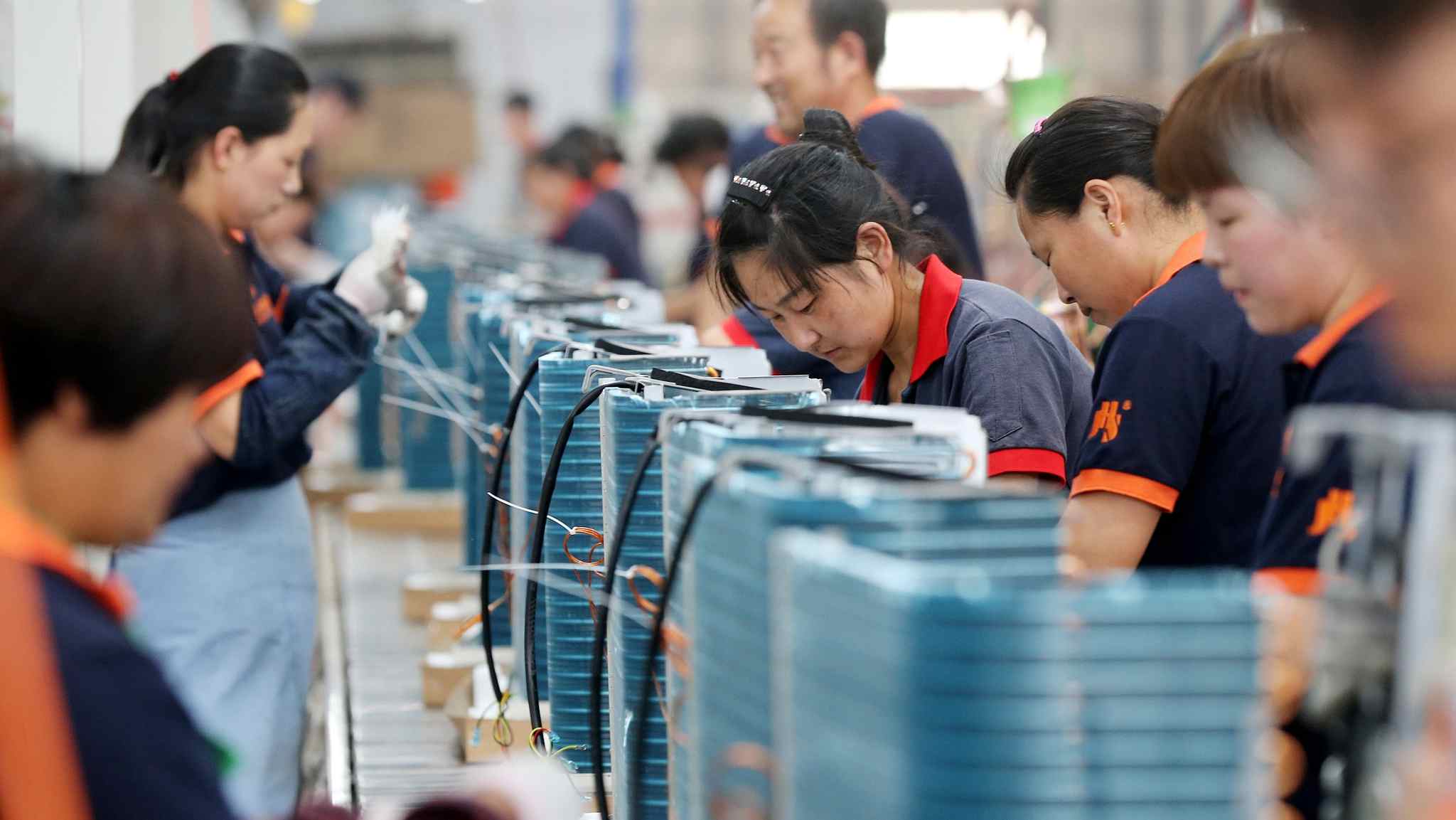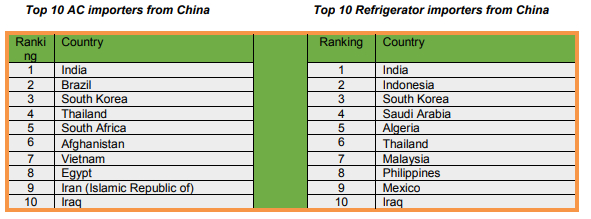
Tech & Sci
18:08, 16-Jul-2018
Can China provide clean cooling systems to the world?
Updated
18:07, 19-Jul-2018
CGTN

With climate change increasing the global temperature, China – the technology leader in the cooling sector – should be seen as a critical partner for finding new solutions to efficient cooling systems in developing countries, a report maintained.
Experts revealed that the country’s Belt and Road Initiative (BRI) and South-South Cooperation Climate Fund (SSCCF) have the potential to provide clean cooling systems to the rest of the world, especially to developing countries.
The Chinese government has already pledged 3.1 billion US dollars to help developing countries combat the impact of climate change.
The report “China’s Global Cool: The potential for more and better south-south cooperation on efficient, clean cooling from China” also provides a prioritization strategy for the cooling sector.
Experts suggest that a partnership with five diverse countries – Afghanistan, Egypt, the Maldives, Myanmar, and Sudan – could deliver the greatest results to the sector.
Researchers used a system that included the country’s ratification to the Kigali Convention to the agreement under the BRI, to select these five countries for a future partnership.
“This report provides valuable insights into an underexplored environmental arena, particularly in the context of south-south cooperation,” Erik Solheim, head of the United Nations Environment Programme, (UNEP) said.
“I hope it will inspire new sustainable solutions between China and its development partners.”

China is a global leader in providing cooling systems worldwide. /K-Cep-Development Reimagined graphics
China is a global leader in providing cooling systems worldwide. /K-Cep-Development Reimagined graphics
Researchers highlighted some of the innovations made by Chinese companies for providing affordable cooling systems for energy-starved developing countries.
Hainergy, a subsidiary of Haier, provides entirely solar-powered fridges and air-conditioners for developing countries. Chinese companies are innovating while using efficient cooling systems, and are phasing down greenhouse gas hydrofluorocarbons (HFC), the report highlighted.
In previous years, China donated thousands of energy-efficient air conditioners to Barbados, Benin, Burundi, Cameroon, Egypt, Ghana, Grenada, Madagascar, Nigeria, Samoa, Tonga, and Uganda.
Researchers also cited examples of private Chinese companies, such as the Broad Group which successfully implemented district cooling solutions to Singapore and elsewhere.
“This report is not just to make a case for Chinese organizations to do better, but to also prompt others to actively seek partnerships with Chinese organizations,” said Hannah Ryder, CEO of Development Reimagined.
“People really know so little about how China works – we wanted to provide that insider view.”
Researchers suggested that China should move beyond training and donations. For instance, Chinese companies operating abroad should initiate new Corporate Social Responsibility (CSR) programs. The report also proposed instituting some form of trilateral cooperation for the sector.
“There are many non-Chinese, international partners with interest, financial resources and technical expertise, such as UNEP, the Kigali Cooling Efficiency Program, and others. Indeed, such a model was used in 2010 for a project in the Maldives,” the report stated.
(Cover Image: Manufacturing unit for air conditioners in east China's Anhui Province. /VCG Photo)

SITEMAP
Copyright © 2018 CGTN. Beijing ICP prepared NO.16065310-3
Copyright © 2018 CGTN. Beijing ICP prepared NO.16065310-3